第5章 CHILDHOOD AND YOUTH(4)
Another educational opportunity came in my way because one of my uncles was postmaster of the village. Through his post-office came several high-class magazines and foreign reviews. There was no rural delivery in those days, and the mail could only be had on personal application, and the result was that the subscribers of these periodicals frequently left them a long time before they were called for. I was an omnivorous reader of everything available, and as a result these publications, especially the foreign reviews, became a fascinating source of information and culture. They gave from the first minds of the century criticisms of current literature and expositions of political movements and public men which became of infinite value in after-years.
Another unincorporated and yet valuable school was the frequent sessions at the drug store of the elder statesmen of the village.
On certain evenings these men, representing most of the activities of the village, would avail themselves of the hospitable chairs about the stove and discuss not only local matters but the general conditions of the country, some of them revolving about the constitutionality of various measures which had been proposed and enacted into laws. They nearly all related to slavery, the compromise measures, the introduction of slaves into new territories, the fugitive slave law, and were discussed with much intelligence and information. The boys heard them talked about in their homes and were eager listeners on the outskirts of this village congress. Such institutions are not possible except in the universal acquaintance, fellowship, and confidences of village and country life. They were the most important factors in forming that public opinion, especially among the young, which supported Mr. Lincoln in his successful efforts to save the Union at whatever cost.
A few days after returning home from Yale I entered the office of Edward Wells, a lawyer of the village, as a student. Mr. Wells had attained high rank in his profession, was a profound student of the law, and had a number of young men, fitting them for the bar under his direction.
I was admitted to the bar in 1858, and immediately opened an office in the village. My first client was a prosperous farmer who wanted an opinion on a rather complicated question. I prepared the case with great care. He asked me what my fee was, and I told him five dollars. He said: "A dollar and seventy-five is enough for a young lawyer like you." Subsequently he submitted the case to one of the most eminent lawyers in New York, who came to the same conclusion and charged him five hundred dollars.
On account of this gentleman's national reputation the farmer thought that fee was very reasonable. In subsequent years I have received several very large retainers, but none of them gave so much satisfaction as that dollar and seventy-five cents, which I had actually earned after having been so long dependent on my father.